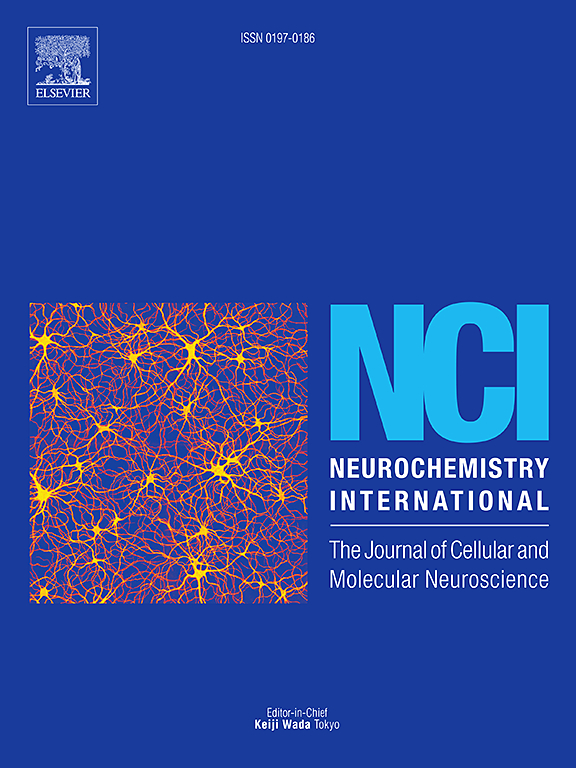The role of mitochondrial remodeling in neurodegenerative diseases
IF 4.4
3区 医学
Q2 BIOCHEMISTRY & MOLECULAR BIOLOGY
引用次数: 0
Abstract
Neurodegenerative diseases are a group of diseases that pose a serious threat to human health, such as Alzheimer's disease (AD), Parkinson's disease (PD), Huntington's disease (HD) and Amyotrophic Lateral Sclerosis (ALS). In recent years, it has been found that mitochondrial remodeling plays an important role in the onset and progression of neurodegenerative diseases. Mitochondrial remodeling refers to the dynamic regulatory process of mitochondrial morphology, number and function, which can affect neuronal cell function and survival by regulating mechanisms such as mitochondrial fusion, division, clearance and biosynthesis. Mitochondrial dysfunction is an important intrinsic cause of the pathogenesis of neurodegenerative diseases. Mitochondrial remodeling abnormalities are involved in energy metabolism in neurodegenerative diseases. Pathological changes in mitochondrial function and morphology, as well as interactions with other organelles, can affect the energy metabolism of dopaminergic neurons and participate in the development of neurodegenerative diseases. Since the number of patients with PD and AD has been increasing year by year in recent years, it is extremely important to take effective interventions to significantly reduce the number of morbidities and to improve people's quality of life. More and more researchers have suggested that mitochondrial remodeling and related dynamics may positively affect neurodegenerative diseases in terms of neuronal and self-adaptation to the surrounding environment. Mitochondrial remodeling mainly involves its own fission and fusion, energy metabolism, changes in channels, mitophagy, and interactions with other cellular organelles. This review will provide a systematic summary of the role of mitochondrial remodeling in neurodegenerative diseases, with the aim of providing new ideas and strategies for further research on the treatment of neurodegenerative diseases.
线粒体重塑在神经退行性疾病中的作用。
神经退行性疾病是一类严重威胁人类健康的疾病,如阿尔茨海默病(AD)、帕金森病(PD)、亨廷顿病(HD)和肌萎缩侧索硬化症(ALS)等。近年来,人们发现线粒体重塑在神经退行性疾病的发生和发展中起着重要作用。线粒体重塑是指线粒体形态、数量和功能的动态调控过程,通过调节线粒体融合、分裂、清除和生物合成等机制影响神经元细胞功能和存活。线粒体功能障碍是神经退行性疾病发病的重要内在原因。线粒体重构异常参与神经退行性疾病的能量代谢。线粒体功能和形态的病理改变,以及与其他细胞器的相互作用,可影响多巴胺能神经元的能量代谢,参与神经退行性疾病的发生。近年来,PD和AD患者数量逐年增加,采取有效的干预措施,显著降低发病率,提高患者的生活质量,显得尤为重要。越来越多的研究者认为,线粒体重塑及其相关动力学可能从神经元和自我适应周围环境的角度积极影响神经退行性疾病。线粒体重塑主要涉及自身的裂变融合、能量代谢、通道改变、线粒体自噬以及与其他细胞器的相互作用。本文将对线粒体重塑在神经退行性疾病中的作用进行系统总结,以期为进一步研究神经退行性疾病的治疗提供新的思路和策略。
本文章由计算机程序翻译,如有差异,请以英文原文为准。
求助全文
约1分钟内获得全文
求助全文
来源期刊

Neurochemistry international
医学-神经科学
CiteScore
8.40
自引率
2.40%
发文量
128
审稿时长
37 days
期刊介绍:
Neurochemistry International is devoted to the rapid publication of outstanding original articles and timely reviews in neurochemistry. Manuscripts on a broad range of topics will be considered, including molecular and cellular neurochemistry, neuropharmacology and genetic aspects of CNS function, neuroimmunology, metabolism as well as the neurochemistry of neurological and psychiatric disorders of the CNS.
 求助内容:
求助内容: 应助结果提醒方式:
应助结果提醒方式:


